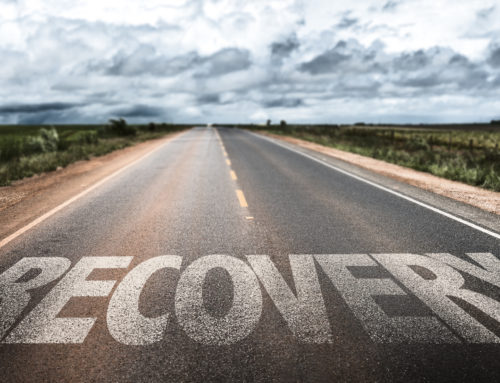
Research has shown that group therapy is a leading method of helping people to recover from addiction. The most highly regarded starting point when treating a substance use disorder is rehab, during which you’re introduced to group therapy, individual therapy, and holistic therapy. Many experts argue that the benefits of group therapy are incredibly significant because of the focus on autonomy and the self-esteem boost gained from sharing with your peers.
Once you’ve completed a rehabilitation program that lasts for at least 28 days, it’s recommended that you continue treatment on an outpatient basis indefinitely. At least one hour each of group therapy and individual therapy, plus regular practice of your favored style of holistic therapy, for at least two years guarantees the best chances of long-term recovery.
How Can Group Therapy Help Addiction Sufferers?
By sharing your experiences and feelings with others who have had similar experiences, you gain a clearer perspective of your problems. No two people share identical stories — some group members’ plights may be shocking, and others may seem somewhat unremarkable. It’s these precise contrasts that help to show you that addiction can happen to anyone and highlight the disease for the indiscriminate homewrecker it is.
Additionally, participants learn to speak confidently and freely about how they feel in front of other people. A common thread that runs through the past lives of people who suffer from substance use disorders is an inability to open up or a tendency to hide or cover up their true feelings. Often, those who regularly attend these sessions feel an enormous weight off their shoulders and a newfound sense of freedom.
Who Leads Group Therapy?
Each group therapy session is led by a trained counselor who sits back and allows the attendees to do most of the talking. Their role is to set the topics and help to ensure that everyone has a fair chance of contributing to the discussion. The group leader is always listening carefully to identify any common themes running through each individual’s discourse. If they pick up on a thought process or thinking pattern that may be problematic, they’ll sensitively offer their insight.
It’s integral that no one is left out, and the counselor is always careful to pay attention to each member of the group. For instance, if one client regularly uses negative language to describe themselves, the group leader will point this out and suggest why this is unhealthy. Another example would be explaining to clients who praise others while remaining quiet about themselves that they may be people-pleasing.
Substance Abuse Group Activities
- Charades is an excellent game to play during these sessions. It allows participants to observe and act out and partake in communication that doesn’t involve words. It’s an icebreaker, as well as the perfect way to open a discussion about body language.
- Role-playing is an excellent way of understanding the importance of empathy. Clients tend to roll their eyes when they hear that they’ll be taking part in this exercise but often find themselves emotionally touched by the results. One common scenario asks an individual to pose as a loved one such as their mother, father, partner or sibling. The rest of the group is then encouraged to ask them direct questions that they respond to in character.
- Listing bad habits allows each attendee to address what they do that they consider harmful and share ideas about what they can do instead.
- Musical instruments are excellent tools in support groups. Expressing yourself through creativity provides a buzz unlike anything else. In group therapy, you can gain the confidence to do it in front of other people.
- Group stories are devised by sitting in a circle and taking turns in contributing one word to make up a story with your peers. The group leader acts as a scribe, and you’ll be surprised at how touching and insightful the practice can be.
- Labels and stereotypes can be examined through a group exercise that involves each person having a sticky note attached to their back. The notes will say things such as criminal, poor, rich, stupid, addict or depressed, and everyone walks around the room treating each individual according to their label. You have to guess your label from the way everyone is treating you.
10 Group Therapy Discussion Topics
- Discuss a poignant childhood memory. If you had children, would you raise them the way you were raised? What were the good and bad aspects of your formative years?
- Introduce yourself to your peers by sharing two things about yourself that are unusual or funny.
- Read your favorite quote, song lyric, poem or passage in a book and share why you treasure it. Listen to other people’s and try to understand why it means so much to them.
- Self-affirmations are an integral part of recovery. Talk about what makes you unique and learn to focus on the positive things about yourself.
- Discuss mindfulness and how to live in the moment. What are the benefits of taking everything at face value?
- Who are your role models and why? Which traits do you want to mirror? If you formerly used to look up to someone and no longer do, what made you stop?
- Talk openly about your genuine feelings towards 12-step meetings. Will you continue to attend them once you leave rehab? Why do you think they have been so successful?
- Have you ever been bullied or bullied someone? What impact did it have on you, and how do you think your bully/the person you bullied feels?
- Learn about and address the neuroscience of addiction. Do you think understanding it gives you the power to fight it?
- Talk about how good sleep, keeping fit and eating well can change your life. How important is lifestyle in recovery?
Group therapy is a cornerstone of addiction treatment. It gives participants the insights of many different people with unique experiences and gives you a platform to share your story. If you’re ready to explore the options available at rehab, call New Day Recovery at 330-953-3300.







